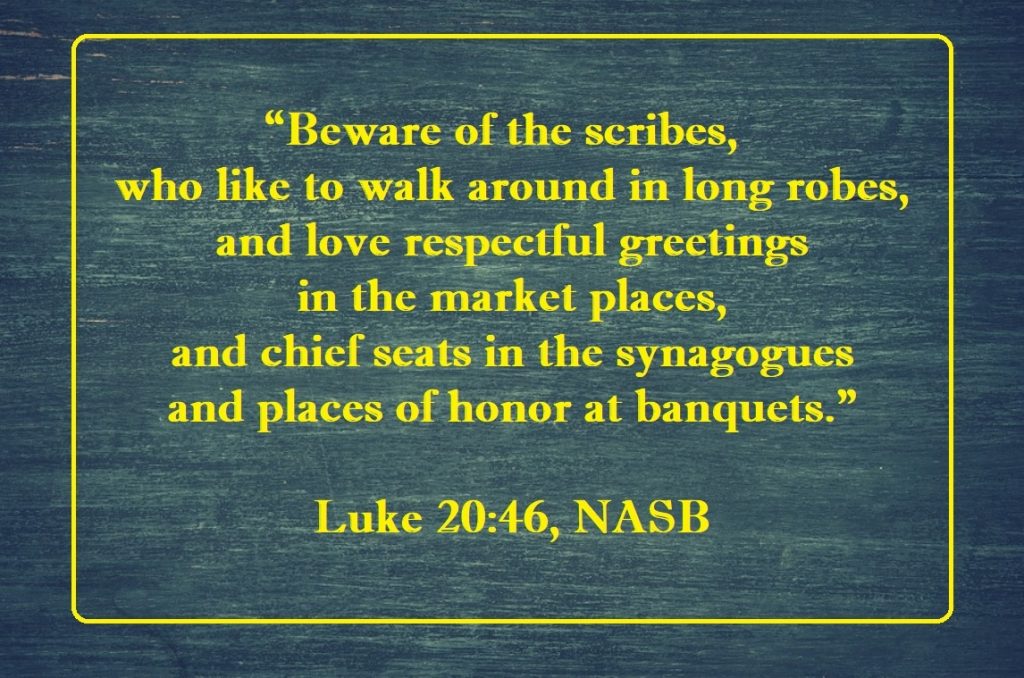“Go therefore and make disciples of all the nations…teaching them to observe all that I commanded you; and lo, I am with you always, even to the end of the age” (Matthew 28:19-20, NASB).
——————–
Contents:
1) Joshua’s Encouragement (Doy Moyer)
2) Seed and Soil (Jim R. Everett)
3) Silence of the Scriptures (Irvin Himmel)
——————–

-1-
Joshua’s Encouragement
Doy Moyer
As the children of Israel were preparing to go into the Promised Land, Moses delivered a series of speeches to help them understand how important their love and obedience to God would be (see Deuteronomy 6:1-9). Moses would not enter the Land himself, but Joshua had been chosen as the successor who would bring the people across the Jordan River. Before this happened, God spoke to Joshua to give him encouragement and help him know that God would be with him (Joshua 1:1-9). The essence of that message is an important reminder for God’s people today:
Moses My Servant Is Dead
Didn’t Joshua and the people already know this? They had been mourning Moses’ death for thirty days (Deuteronomy 34:8), so why would God say this? Sometimes people need simple reminders that the past really is in the past and it’s time to move forward. It’s obvious, yet there are times we let what happened in the past get in the way of what should happen in the future. Moses was a servant who was a good example and leader for them, but they could not afford to get stuck on what was. Compare this with Paul’s point in Philippians 3:13-14. “But one thing I do: forgetting what lies behind and straining forward to what lies ahead, I press on toward the goal for the prize of the upward call of God in Christ Jesus.” Don’t allow the past to keep us from moving forward.
Arise and Go
Again, Joshua needed to get moving now that the days of mourning were over. Even knowing that the past is behind us does not mean we feel ready to get back to work. There needs to be the resolve and will to “arise and go.” There is a time to mourn, but then we must get up and get going because great work lies ahead. Compare this with what Jesus told the disciples when they had slept through their opportunity to watch and pray: “Rise, let us be going” (Matthew 26:46). There is work to do and we must engage the will to get it done.
I Will Be with You
God has always been with his people, so His promise stands. Joshua needed to know that God would be with him just as He was with Moses. The fact that Moses died did not mean that God had abandoned the people or the promises given through Moses and those before him. In times of disappointment and loss, it is easy to think that God has left us, but this passage reminds us that God stays with His people through the tears and difficulties. “He has said, ‘I will never leave you nor forsake you.’ So we can confidently say, ‘The Lord is my helper; I will not fear; what can man do to me?’” (Hebrews 13:5-6).
Be Strong and Courageous
It would take strength and fortitude to do what needed to come next for Joshua and the children of Israel. Their task would not be easy. If they imagined the enemies they would face or the problems that could seem insurmountable to them, they could become discouraged and give up before going any further. This was the problem faced by the previous generation who had sent spies into the land only to come back and report that there were giants and they were like grasshoppers (Numbers 13-14). The lack of faith in God and obedience to His will led to their rejection and inability to go into the Land (Hebrews 3-4). This new generation had another opportunity. Their courage would be tested and Joshua would be leading the charge.
Don’t Turn to the Right Hand or to the Left
This passage is about success: “For then you will make your way prosperous, and then you will have good success.” Yet this success was also grounded in their faithfulness to the covenant. The “Book of the Law” was not to depart from them. They were to be careful to do all that was written in it. They were not to turn from it “to the right hand or to the left.” They could not expect success if they turned from God’s revelation. And neither can we. We want success and blessings, but if we turn from God’s revealed will, how can we expect God to bless us in that?
As Israel did then, so today we face difficulties in a world that has little respect for God and His message. We need similar reminders. The past is gone, so let us not get hung up on it. Let us get up and get to work for the Lord! Know that God is with us and will strengthen us in His will. We need to be strong and courageous, as Paul reminds us: “Finally, be strong in the Lord and in the strength of his might. Put on the whole armor of God, that you may be able to stand against the schemes of the devil” (Ephesians 6:10-11). Let us be faithful to the Lord and His revealed will, for the Lord will be with us and give us success!
— Via Articles from the La Vista church of Christ, January 3, 2023
——————–

-2-
Seed and Soil
Jim R. Everett
The productivity of seed is directly proportionate to the fertility of soil. It matters not how good the seed is, if it is planted in bad soil; either it will not germinate or, having germinated, it will produce a sickly plant. So it is with the word of God and human hearts.
In the parable of “The Sower,” stress is laid, not on the power of the seed, but, on the kind of soil in which it is sown. Four kinds of soil are mentioned in which the seed is sown — the wayside, rocky places, soil in which thorns are abundant, and good soil (Lk. 8:1-15; Matt. 13:1-23). Each of these represents four different kinds of human hearts, while the seed is called “the word of God” (Lk. 8:11).
The deficiencies of the first three kinds of soil do not, in any way, cast reflection upon the power of the seed to produce life. The problem is in the soil and not in the seed. Neither should men speak of the word of God as powerless to convert men — the potential to produce new life and to change men is found in the word of God (see Romans 1:16; 1 Peter 1:22-25). So why doesn’t it always bring forth an abundant harvest? — because the soil, the human heart, is not receptive or it is encumbered with the cares of the world. So, let’s not blame God for our lack of productivity — the kind of soil we are has been our choice.
What are the ingredients of fertile soil? Jesus defines it thusly: “… they, which in an honest and good heart, having heard the word, keep it, and bring forth fruit with patience” (Lk. 8:15 ). I believe there are still human beings with good hearts that want the word of God. Is your soil Good?
— Via The Beacon, January 23, 2023
——————–
Galatians 5:22-23
“But the fruit of the Spirit is love, joy, peace, patience, kindness, goodness, faithfulness, gentleness, self-control; against such things there is no law” (NASB).
——————–

-3-
Silence Of The Scriptures
Irvin Himmel
The Bible is silent about the use of any elements in the Lord’s supper except bread and the fruit of the vine. The bread brings to remembrance the body of Christ, and the fruit of the vine brings to remembrance his blood (1 Cor. 11:23-25). It would be presumption on our part to add cheese to the bread, or to suggest that mutton be served to remind us of the Lamb of God!
The Bible is silent about churches taking monetary collections at a time other than the first day of the week. The first day of the week is the time specified to lay by in store (1 Cor. 16:1,2). We are taking undue liberties to contend that a congregation may take up a collection on Wednesday night!
The Bible is silent about Christians offering any kind of music in praise to God except singing. We are to offer “the fruit of our lips” (Heb. 13:15), singing and making melody in the heart (Eph. 5:19). We venture beyond the New Testament when we add playing to the singing!
Some people say they speak where the Bible speaks. But where the Bible is silent, they speak whatever they please. It is best to be silent where the Bible is silent. Let us learn to speak as the oracles of God and show respect for the silence of God. Silence does not give authority to speak. Silence is not our religious guide.
— Via Viewpoint from the Valley Grove church of Christ, October 2, 2022
——————–
Psalm 119:17-18
“…Deal bountifully with Your servant,
That I may live and keep Your word.
Open my eyes, that I may behold
Wonderful things from Your law” (NASB).
——————–
The Steps That Lead to Eternal Salvation
1) Hear the gospel — for that is how faith comes (Rom. 10:17; John 20:30-31).
2) Believe in the deity of Jesus Christ, the Son of God (John 8:24; John 3:18).
3) Repent of sins. For every accountable person has sinned (Romans 3:23; Romans 3:10), which causes one to be spiritually dead (Ephesians 2:1) and separated from God (Isaiah 59:1-2; Romans 6:23). Therefore, repentance of sin is necessary (Luke 13:5; Acts 17:30). For whether the sin seems great or small, there will still be the same penalty for either (Matt. 12:36-37; 2 Cor. 5:10) — and even for a lie (Rev. 21:8).
4) Confess faith in Christ (Rom. 10:9-10; Acts 8:36-38).
5) Be baptized in water for the remission of sins (Mark 16:16; Acts 2:38; 22:16; 1 Pet. 3:21). This is the final step that puts one into Christ (Gal. 3:26-27). For from that baptism, one is then raised as a new creature (2 Cor. 5:17), having all sins forgiven and beginning a new life as a Christian (Rom. 6:3-4). For the one being baptized does so “through faith in the working of God” (Col. 2:12). In other words, believing that God will keep His word and forgive after one submits to these necessary steps. And now as a Christian, we then need to…
6) Continue in the faith by living for the Lord; for, if not, salvation can be lost (Matt. 24:13; Heb. 10:36-39; Rev. 2:10; 2 Pet. 2:20-22).
——————–
Tebeau Street
CHURCH OF CHRIST
1402 Tebeau Street, Waycross, GA 31501
Sunday: 9 a.m. Bible Classes and 10 a.m. Worship Service. We also have a Song Service at 5 p.m. for every first Sunday of the month.
Wednesday: 7 p.m. Bible Classes
evangelist/editor: Tom Edwards (912) 281-9917
Tom@ThomasTEdwards.com
https://thomastedwards.com/go/all.htm/ (This is a link to the older version of the Gospel Observer website, but with bulletins going back to March 4, 1990.)

















